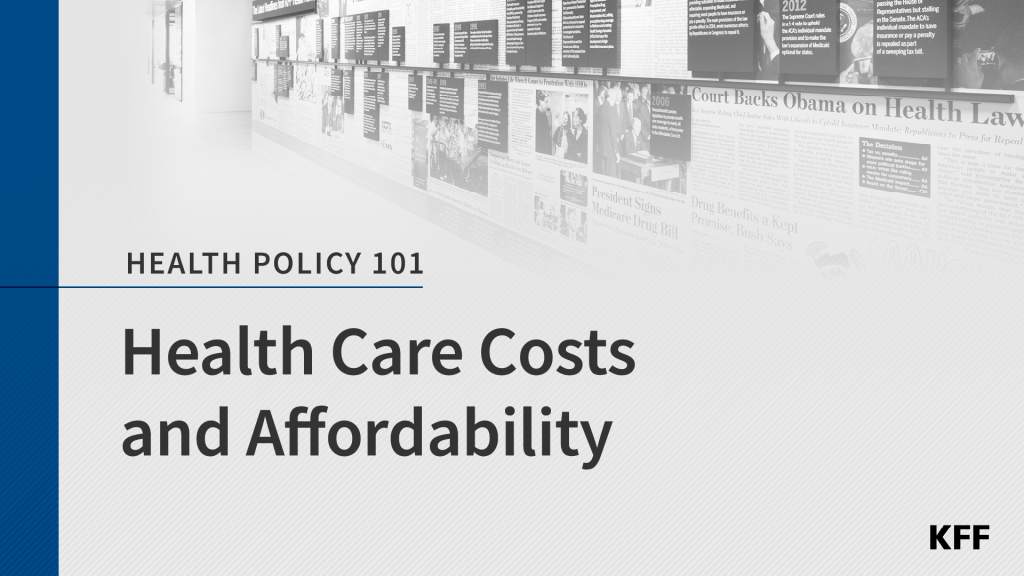Health Policy 101 is a comprehensive guide covering fundamental aspects of U.S. health policy and programs, including Medicare, Medicaid, the Affordable Care Act, employer-sponsored insurance, the uninsured population, health care costs and affordability, women's health issues, and health care politics. The Health Care Costs and Affordability chapter explores trends in health care costs in the U.S. and the factors that contribute to this spending. It also examines how health care spending varies across the population, the impact of costs on care affordability and individuals' overall financial vulnerability.
View the Chapter →
